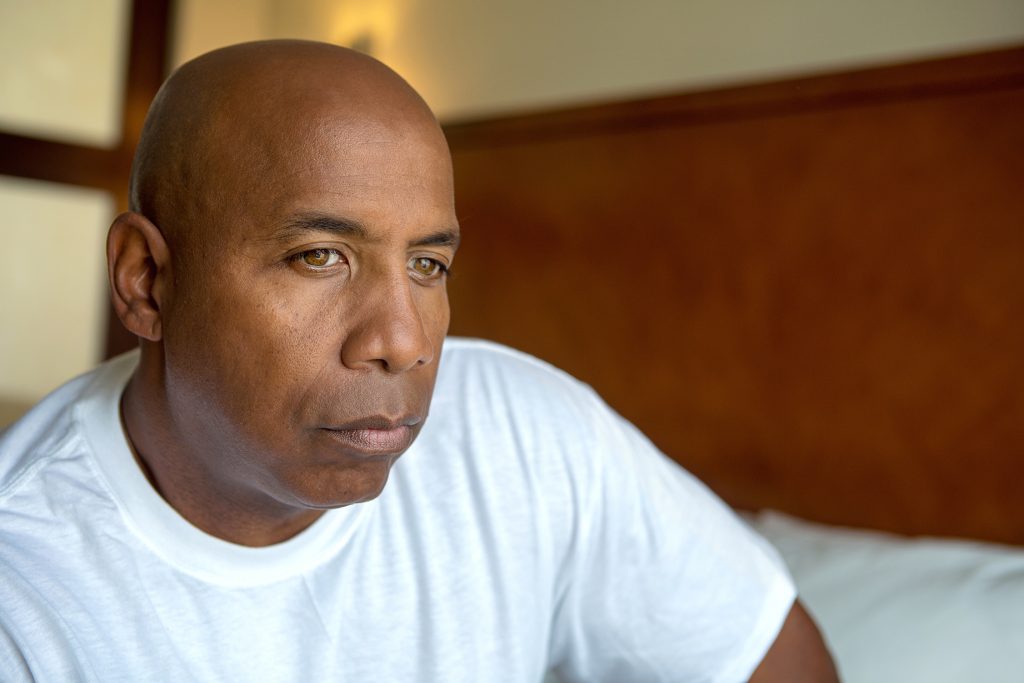10 common reactions to trauma

The news has unfortunately been dominated recently by harrowing stories of knife attacks, and while they remain a rare occurrence, it’s understandable if you feel unnerved by the broadcasted images and tales from witnesses.
You don’t have to be a direct witness of such a crime to experience trauma, therefore if you’ve been disturbed by recent events that have hit the headlines, you might be experiencing one or several common reactions to trauma.
Of course, if you have been a witness of crimes of this nature, your reactions are likely to be particularly vivid.
In either case, you’re not experiencing anything out of the ordinary, and it’s important to allow the feelings to pass and to seek support when you feel you need it. That’s why we’re here, and if you feel like you need to talk to someone having directly witnessed a violent crime, please do not hesitate to get in touch with our friendly team.
Here are some of the most common reactions to trauma:
1. Trouble sleeping
You might feel reluctant to go to bed, and when you do, find it almost impossible to drift off. It’s common for us to relive past events when our head hits the pillow – particularly if they are traumatic in nature.
2. Easily startled
Experiencing trauma can put your nervous system into a temporary ‘high’ setting, which might result in you being startled by slamming doors, the ringing of a phone or unexpected greetings from friends and family.
3. Finding danger everywhere
If your nervous system is in a heightened state following trauma, you might detect threats where they don’t exist. Someone walking towards you, the distant sound of a closing door – it’s as though there is danger everywhere when, in reality, there isn’t at all.
4. Constantly on guard
Linked to the expectation that danger is around every corner, the feeling of constantly being on guard is often a result of remaining in shock about a past event. Continually looking over your shoulder or scanning the environment for threats are common symptoms.
5. Feeling weak or inadequate
If you feel somehow ‘less than’ following trauma, this is entirely normal – but absolutely not the case. You might feel weak for having let it happen or that someone else would have handled the situation better. It’s important to remember that these feelings aren’t a reflection of your character, and entirely understandable given the circumstances.
6. Self-criticism
Why are you handling the aftereffects of the trauma so badly? Beating yourself up after witnessing trauma isn’t unusual; you might feel upset with yourself for ‘not being strong enough’. In reality, you have absolutely nothing to feel ashamed of or self-critical about, because this wasn’t your fault and your reaction is entirely justified.
7. Trust issues
It might feel that even the people who are closest to you can no longer be trusted. Once again, this isn’t something to be ashamed of, and nor is it a feeling that will last.
8. Avoiding things that are related to the event
Be it the location where the crime took place or an object that reminds you of the event, you might find yourself actively avoiding any form of contact and finding even the smallest of links to the crime in every day life.
9. Sadness
You’re probably still overwhelmed by what happened, and it’s therefore no wonder that you will occasionally (and unpredictably) end up crying or feeling significant bouts of sadness. Some will pass quickly and you’ll feel better, while others might last for days.
10. A belief that the world is inherently dangerous
Although we regularly read harrowing stories of violent crime in the news, in reality, your chances of experiencing it are still very small. Despite this, if you do witness such crime, it’s understandable if you feel for a time that the world is a dangerous place.
Every symptom above is entirely normal if you have experienced or witnessed trauma, and you’re certainly not alone. However, it’s important to remember that the feelings (whether you’re experiencing one or several) will pass and you’ll eventually cope, recover and thrive.
Remember – we’re here
If you were the victim or witness of a violent crime, you can talk to the team at Voice for independent, confidential support. It doesn’t matter if you haven’t reported the incident to the police, either – we’re here to help you cope, recover and thrive whatever the situation. Contact us whenever you’re ready.
